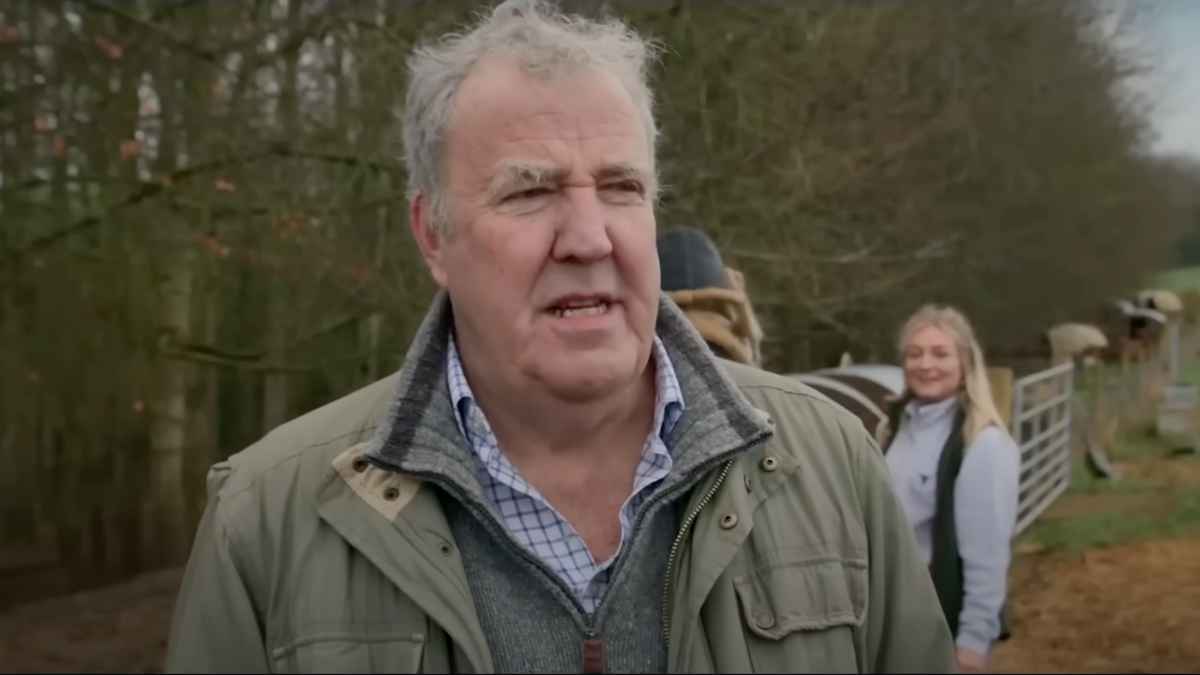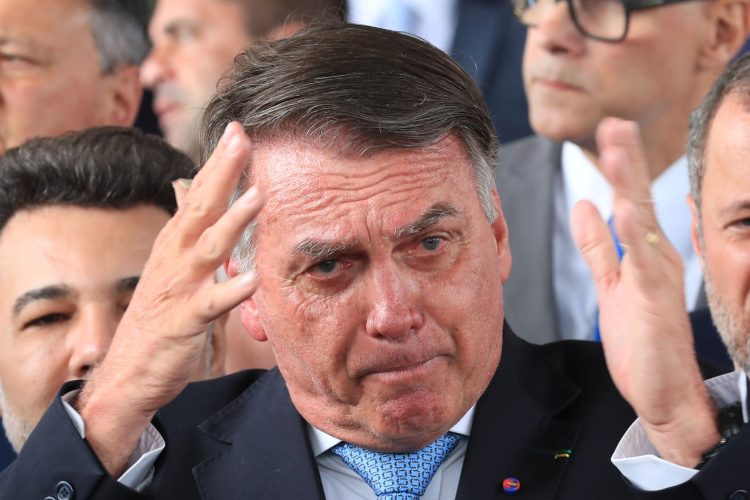
It has now become apparent that the television series Clarkson’s Farm is no longer about Jeremy Clarkson or about farming. It’s about England.
Sure, the first couple of seasons centered on Jeremy Clarkson — the TV personality, writer, and one of England’s sexiest men — bumbling about on a farm in the British countryside. Meanwhile, his heroic farm manager Kaleb Cooper and accounting genius Charlie Ireland were placed on high alert to make sure Clarkson didn’t kill himself or go bankrupt.
Midway through the second and all throughout the third season, however, Clarkson gradually retreated from the limelight to give more attention to the farming community and his partner Cooper. This drove home the point of just how challenging it is to make a living as a farmer in England with its byzantine regulations, shortsighted local councils, and precarious weather.
In one of the later episodes of the third season, Cooper actually meets with the British prime minister at the time, Rishi Sunak, to advocate for British farmers and for encouraging more British youth to enter the farming trades. Although most of this meeting is played for laughs, the grievances are real. This is shown throughout the season when Clarkson manages to organize a farming co-op and set up a farm-to-table restaurant, only to be shut down afterward by the local council.
Undeterred, in the fourth season Clarkson makes another attempt at establishing an outlet for his co-op’s produce. Venturing out to neighboring villages, he hopes to buy an old building in order to fit it out with a locavore restaurant/pub/butcher/farmer’s market that can accommodate a sizable crowd and operate within the narrow legal limits of British statutes.
It is in this endeavor especially that Clarkson’s farming journey exposes some revealing aspects of today’s culture and his country’s lost identity. As he looks at vacant properties, he notices that local pubs have declined precipitously in the past few decades and that village life has long since dissolved.
This sad truth comes out in a poignant conversation he has with his team (over a pint, of course) about the disappearance of local institutions that once brought farmers together to support one another and form tight-knit communities. According to Harriet Cowan, a young woman who fills in for Cooper at the beginning of the season, loneliness and depression are rampant among farmers.
Even if Clarkson himself is insulated from some of these problems, being a wealthy celebrity with a massive fanbase, his fellow farmers are clearly experiencing this first hand. In season four, their plight is particularly bad because of a record rainfall destroying the harvest. Added to this is the closing of local abattoirs (slaughterhouses), negatively affecting farmers with livestock. For these and a multitude of other reasons, many farmers will be forced off their land, further hollowing out England’s countryside and agricultural industry. And they can’t even commiserate with their fellow farmers because the local pubs are all shut down.
Yet it’s hard to shake the feeling that the elites in England and elsewhere probably want it this way.
After all, the lush green fields, the crops, the frolicking cows, pigs, and sheep, the old villages, and yes, the white British yokels who have worked and lived in this area for generations are what make England what it is. These are the descendants of the British yeomen of yore, disconnected from trends and zeitgeists of modernity. They voted for Brexit because they still believed in old-fashioned things like national sovereignty. This is the England that most people dream about, and one of the main draws of Clarkson’s Farm.
By contrast, no one wants to think about the blight, the crime, and the unassimilated immigrant populations that have taken over England’s cities. Nor do they like to think about the country’s bloodless Prime Minister Keir Starmer, who censors his own people, arrests pro-life activists, covers up for Pakistani rape gangs, and seems committed managing his country’s decline.
It’s no coincidence that Clarkson’s Farm is probably one of the least diverse and inclusive shows on any streaming platform — Clarkson himself jokes about this in the first season. Far removed from the woke virus, either taking road trips around the world or puttering around in his monster truck tractor on his farm, Clarkson clearly wants to be true to his subject and hire the people who normally do the work. They just happen to be mostly white middle-aged men.
Indeed, American audiences might marvel at the sight of so many white guys doing the kind of work that is normally reserved for non-white immigrants. Contrary to popular opinion and President Trump’s recent appeal on behalf of the hospitality and agricultural industries, they really can do the work. More importantly, they want to do the work. Even though their government either neglects them or actively marginalizes them, they continue to form the backbone of British life. And if they persist in their thankless task, they may just prove to be their county’s future as well.
As such, no one watching the two young farmers, Kaleb Cooper and Harriet Cowan, would ever think to pity them. Unlike the rest of their generation, these two are doing fulfilling work, building up hard skills, and are financially independent. They are literally “touching grass” instead of losing themselves on their smartphones. Hopefully, they can convince more young people with the intelligence, work ethic, and desire to work on a farm, even if they have been conditioned to believe that all opportunity and respectability exclusively lie in urban life.
As for Clarkson himself, what started as an amusing premise has now evolved into a compelling alternative vision for his country. Quite by accident, he has become an icon of the farming world, a living rebuke to the artificial, technocratic, globalist, and humorless world order that prevails in the West.
As long as his health holds up, he needs to continue his work of reviving rural England and thus rekindle a desire in his audiences to restore their own local communities, reconnect with the land, and live more authentically.


